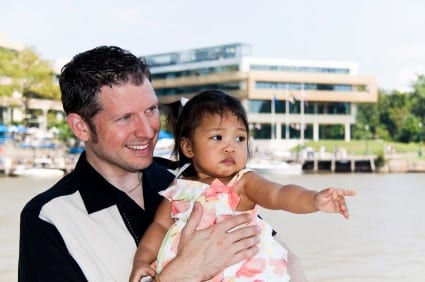For adoptees, exit from one family and entrance into another can create an array of emotional challenges. This major life change can lead to challenges both in the years immediately following the adoption as well as in the future when the adoptee attempts to delve deeper into who he is and forms relationships with others. While nothing can completely eliminate these emotional ramifications of adoption, being aware of the issues and preparing for their possible eventual surfacing can help you assist the adoptee in your family to overcome these struggles more effectively.
Fear of Loss
Many adoptees are plagued by a constant fear of loss, reports the federal Child Welfare Information Gateway. While no studies have shown why, even individuals who were adopted during infancy commonly exhibit these emotions later in life. This fear of loss can lead to later-in-life relationship struggles, including intimacy issues and an inability to trust romantic partners.
Development of Identity
As adoptees reach those troublesome teenage years, many struggle more acutely than their same-age peers with the process of developing identity. These teens often struggle to answer the question, "Who am I?" This also causes them to engage in more extensive soul searching than their peers. During this identify development period, adoptees may also develop a heightened sensitivity regarding the way they look, feeling out of place or uncomfortable if they do not resemble the members of their adopted family, reports the Child Welfare Information Gateway.
Rebellion in Adoptees
Some adoptees exhibit increased rebelliousness and move through a phase in which they question the authority of their adoptive parents or others who attempt to exert control over them. This increased rebelliousness often first appears during teenage years when adolescents commonly begin the questioning and defiant stage of their development; however, some adopted children enter this stage at an even younger age, prompted by the stress of moving through life raised by people genetically unrelated to them.
Addiction Tendencies
In the later teen years and in early adulthood, many adoptees are driven by their internal emotional struggles to engage in addictive behaviors, such as drug use or alcoholism. The Child Welfare Information Gateway reports that this increased likelihood of addiction may be due in part to the fact that the adopted individual has felt for so long that he has no constant in his life. The addictive substance meets this need, acting as an always reliable companion.
Coping Options
While these emotional struggles cannot be prevented in their entirety, adoptees can cope with these challenges in an assortment of ways. In many cases, adopted individuals can benefit from participation in a support group comprised of others who joined families through adoptions. In the event of severe emotional difficulties, one-on-one counseling may be necessary to deal with the emotional issues that arise. Parents of adopted children can help prevent these struggles by always working to maintain open channels of communication with the adopted child and encouraging him to come to them whenever he needs to talk or has questions.





